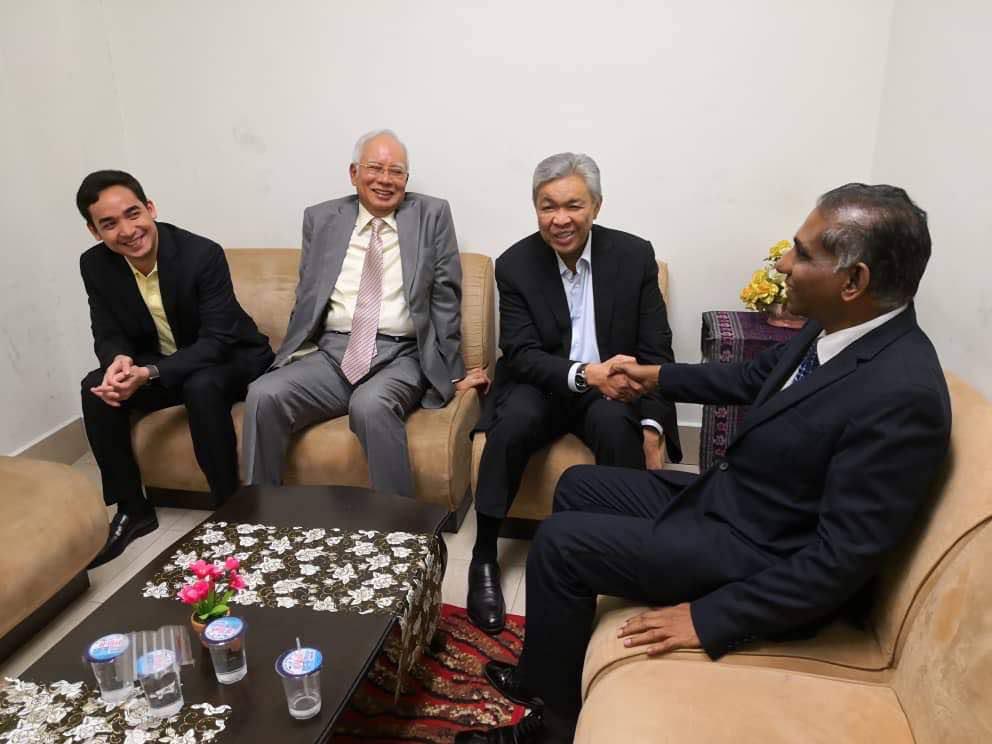In new memoir, Mahathir tells of ‘millionaire civil servants’, thesis-like manifesto
He says his biggest problems upon his return to Putrajaya included the state of finances and the rot in the civil service.
Just In
Top civil servants under the administration of Najib Razak were earning way more than their government salaries, with at least one of them paid RM200,000 a month, Dr Mahathir Mohamad revealed in a new memoir covering the former leader’s second appointment as prime minister.
Mahathir, who served for some 22 months under the Pakatan Harapan government, the coalition he led to topple Najib on the back of the 1MDB scandal, said his biggest problems upon his return to Putrajaya included the state of finances and the rot in the civil service.
He said top civil servants including the chief secretary had ignored the burden of huge loans placed on the government under Najib, and were later discovered to be drawing large salaries themselves.
“The government owed more than RM1 trillion – which is a number that has 12 zeroes. If you can fathom it, that is more zeroes than what my calculator has.
“The chief secretary to the government, who was the head of the civil service, was aware of this but did not raise any objection, and on investigation it appeared that the chief secretary had been earning more than he should have,” Mahathir wrote in “Capturing Hope: The Struggle Continues for a New Malaysia”.

The chief secretary then was Ali Hamsa, who was appointed in 2012 and continued to serve some three months after the fall of Najib in 2018.
The 304-page book is Mahathir’s second memoir after “A Doctor in the House”, a biography that captured some of the momentous events during his previous 22-year rule.
The book, seen as his attempt to “tell all” and to set the record straight regarding issues surrounding his brief second term in the top office, will be available at major bookstores in Malaysia and Singapore at RM100 per copy.
Mahathir said apart from the chief secretary, former treasury secretary-general Irwan Serigar Abdullah had also drawn a huge income through the chairmanship of several government companies.
“In total, he was being paid as much as RM200,000 a month – that’s RM2.4 million a year and far above normal government pay,” he said.
“All these people needed to be shunted out, but then who would replace them? I needed people who were honest, and I had to find proof that they were honest and that they had the needed ability.”
Mahathir, 96, helped found Bersatu in 2016 as a challenge to Najib’s Umno during the peak of the revelations surrounding the 1MDB scandal.
He later teamed up with PH to end six decades of Barisan Nasional rule, becoming the oldest elected head of government in the world at the age of 93.
But following controversies surrounding a promised transition of power that would see his former nemesis Anwar Ibrahim replacing him in the top post, the PH coalition fell apart, leading to Mahathir’s shock resignation in February 2020.
‘Unrealistic’ manifesto
In the book, Mahathir highlighted what he called the “opposition mentality” of his Cabinet members, and explained his reservations about PH’s election manifesto, including a promise to abolish toll, something that the veteran politician had publicly opposed.
Despite him giving the foreword to the document, Mahathir said the manifesto was prepared by those who “had no experience of government” and “understood little about the practical constraints a government would face once elected to power”.
“In the end, I had to agree to it because we urgently needed a common platform for the general election, but I was opposed to several provisions of the manifesto and argued that it would have been nearly impossible to deliver on some of the promises.”
He also said PH’s election manifesto was lengthy and unrealistic.
“I think an election manifesto should be short. It should deal with specific points only. It should not be a long treatise, what more one with unrealistic deadlines.”
Mahathir in the book also gave his stand on several other election promises by PH that were not fulfilled, such as the restoration of rights for Sabah and Sarawak, and the abolition of draconian laws.
“We made a lot of promises in the manifesto, but now, having become the government, we simply did not have the necessary parliamentary majority to get them done – or indeed any other matter that needed a constitutional amendment,” he said, adding that efforts to reach out to the opposition at that time also had failed.
Subscribe to our newsletter
To be updated with all the latest news and analyses daily.
